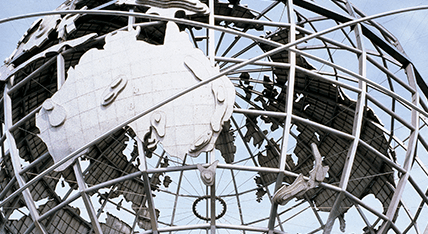Imagination is nothing
James Cameron
James Cameron hails from that well-known stable of filmmakers (that includes the likes of Martin Scorsese, Jonathan Demme, Ron Howard and Francis Ford Coppola) who cut their teeth on the exploitation cinema of the legendary producer/director Roger Corman. His first feature-length directorial credit was Piranha Part Two: The Spawning, but it was his second feature, 1984’s groundbreaking The Terminator, that set the tone for a career that would see him become one of the most innovative pioneers of visual effects in the industry.
“When I was making Terminator, nobody knew who I was,” Cameron recalls. “I couldn’t get a call back from the lowest agent in Hollywood. I was under tremendous pressure to perform because I had to break in. I had to be a diamond sharp drill going through the door into Hollywood.”
Of course, Cameron didn’t just break down Hollywood’s door, he blew off its roof! Just two years later he was trusted to direct Aliens, the follow-up to Ridley Scott’s 1979 sci-fi classic Alien, and in the years since has utilised evolving technologies for work like The Abyss, Terminator 2: Judgment Day and Titanic. And his next film, Avatar, promises to break yet more ground, employing all-new effects techniques—including detailed motion capture suits that permit variable camera positioning, a virtual monitor allowing Cameron to see the motion capture results in real time and a filming rig complete with stereoscopic cameras to create increased depth—to craft a 3D viewing experience like nothing ever seen before. But, despite having all this impressive tech, Cameron doesn’t want his audience to notice it.
“The ideal movie technology is so far advanced that it makes itself disappear,” he says. “It’s what we tried to do on Titanic. We were using state-of-the-art stuff, but I don’t think people came out of the theatre buzzing about the neat CG composite shots or the motion capture that was used for all the big crowd scenes. They were talking about the love story. I think we got a balance on Titanic, and I think we got a balance on Avatar. If you do it right [the technology is] transparent.”
Any screenwriter knows that strong characters are central to a good story and, although Avatar is 70 percent CGI, Cameron hasn’t skimped on the elements that will keep an audience involved after the visual ‘wow factor’ has worn off. “We spent a lot of time on the character design, and based them closely on the actors,” Cameron explains. “We found very early in our testing that the closer the architecture of the face was to the actor playing the character, the better the performance translated. In other words, it didn’t have to be interpreted by Key Frame Animation.
“This is really a story about Jake [played by Sam Worthington] starting to see through the eyes of people who are culturally different,” he continues. “It’s a love story too. So the more alien we made them in the early design phase, we just kept asking ourselves… well, the crude version is, ‘Would you want to do her?’ And all our male artists were basically like, ‘No, take the gills out!’”
Even though he’s creating something completely new, Cameron is confident that Avatar will find a wide audience. “What I’ve found over the years is that I share a certain base response with people who like science fiction and fantasy films in the same way I liked them when I was a kid, when it was The Seventh Seal and 2001: A Space Odyssey,” he explains. “I want somebody in a theatre seat to feel what I felt when I saw that stuff for the first time, and it blew my mind. If I can do that, then that’s the biggest thrill there is.”
To read about the other visionary directors in this article (listed below), subscribe to the print or digital versions of the magazine:
- Shane Acker
- Quentin Tarantino
- Tim Burton
- Roland Emmerich












